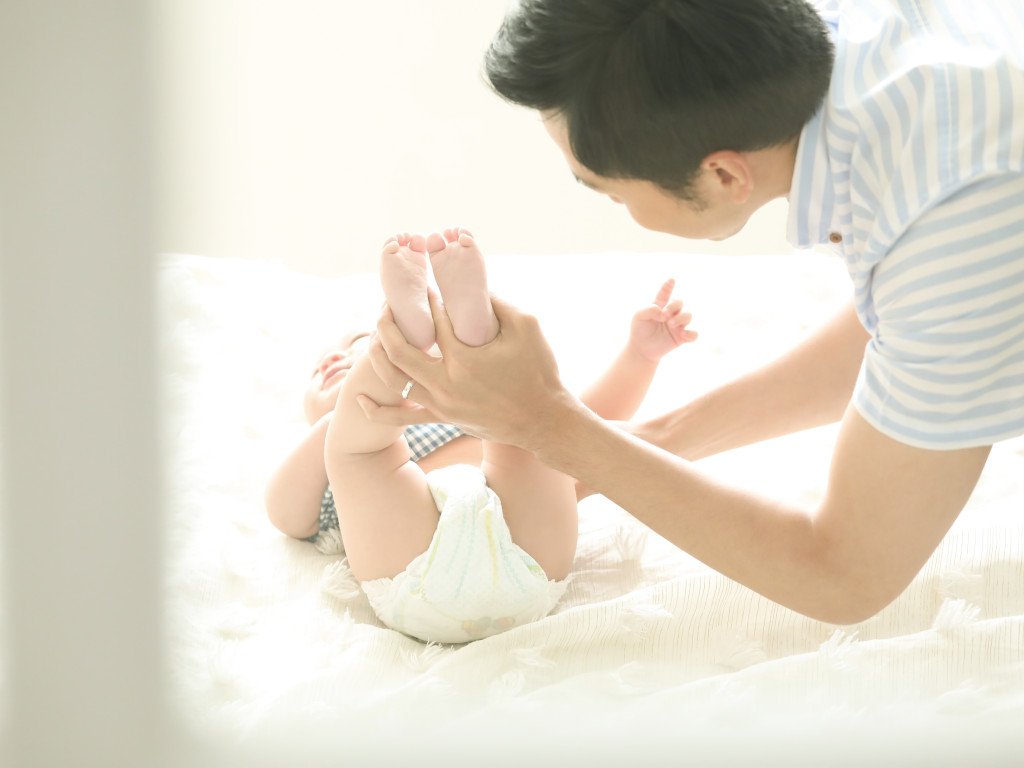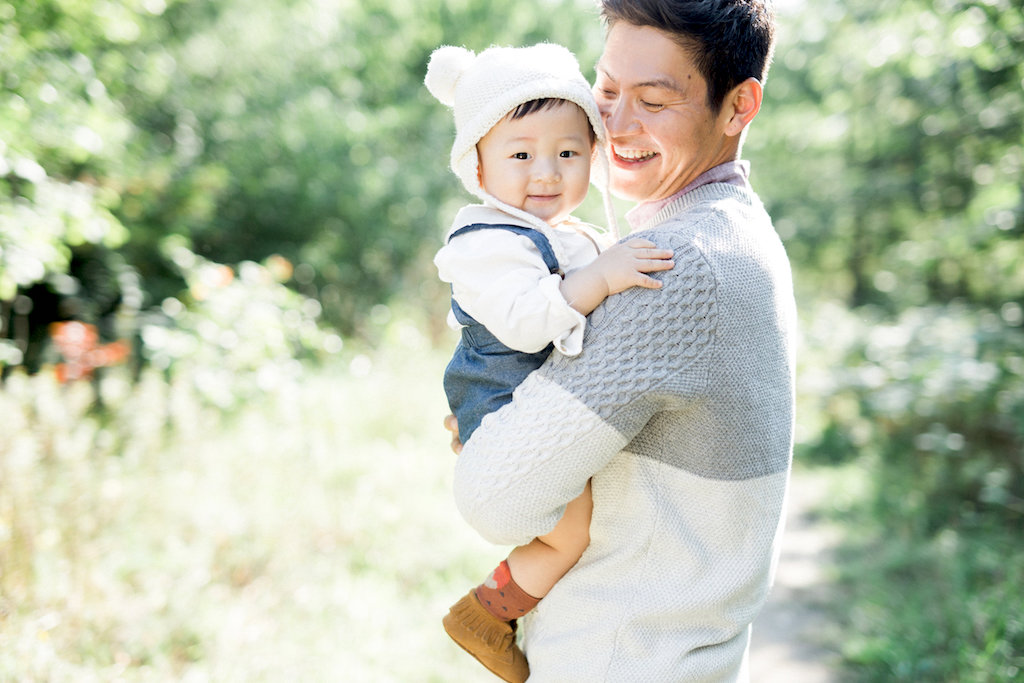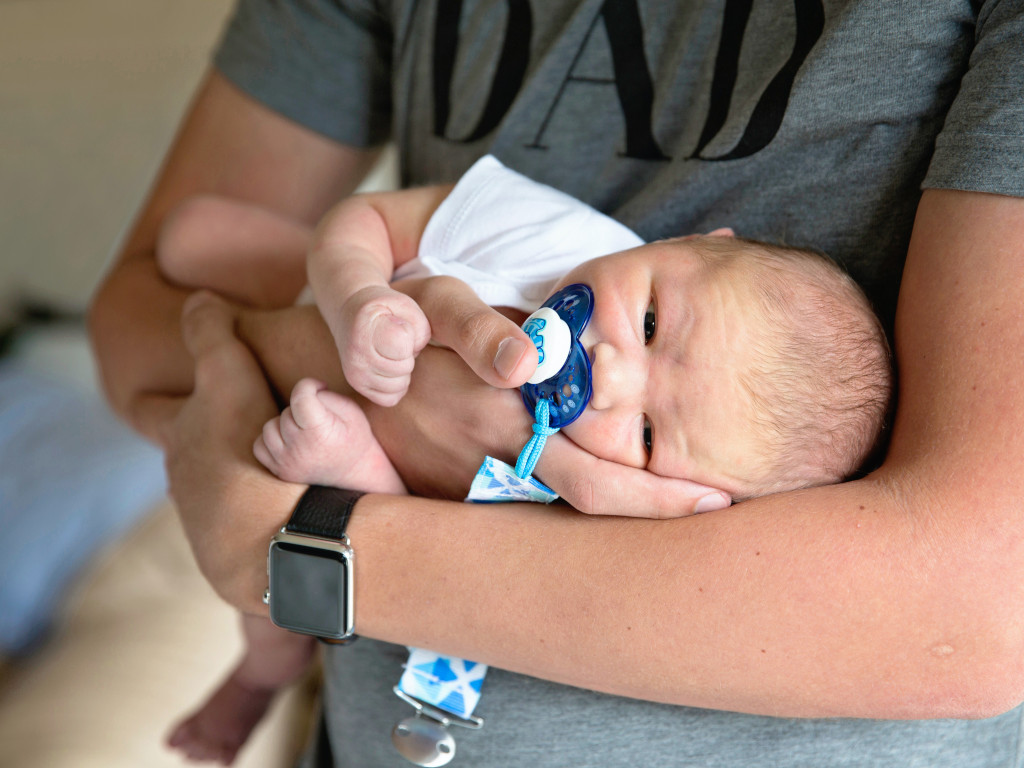SingaporeMotherhood | Baby & Toddler
August 2021
First 1,000 Days of a Child’s Life – Fathers, It’s Your Time to Step Up

Among the myriad challenges that a man might potentially face throughout his life, being a father may very well be the most difficult of them all. From changing a child’s diapers to playing with them, almost nothing else has as far-reaching implications on an individual’s future as being an involved father to a child. And this is most crucial in the first 1,000 days of a child’s life.
Educators and developmental psychologists across the world agree. A child’s first 1,000 days is a time of tremendous potential. It’s when the nurturing of a healthy generation begins, to build a foundation for a strong future for the family, the community, and the nation. It is also a time of enormous vulnerability.
We already know that factors such as the age, health, and well-being of both mother and father prior to the child’s conception significantly affects the integrity of the embryo right from the very beginning.
But beyond developmental outcomes, “active fathering is an opportunity to not only strengthen the bond between a father and child, but also the family as a whole,” says Richard Magnus, Deputy Chairman of Temasek Foundation. “This is especially crucial when taking into account the importance of building strong and healthy families that eventually contribute towards community and social resilience.”
That’s why a dad’s involvement during a child’s first 1,000 days of life matters.
Benefits to Children

Firstly, children who experience their first 1,000 days in the presence of an involved father enjoy several developmental outcomes over those that do not.
“When a father is bonded with his newborn, it lays a strong foundation for their relationship, which helps to foster a healthy self-esteem in the child. This, in turn, buffers them for stress-related problems and mental health conditions later in life,” says Associate Professor Helen Chen, Head and Senior Consultant at the Department of Psychological Medicine in KK Women’s and Children’s Hospital (KKH).
“As children grow, the rough and tumble play with the father provides the experience of thrill and excitement. The outpouring of bonding chemicals such as oxytocin and dopamine will help enhance the relationship and build mental resilience, as well as physical coordination and social skills.
“Over time, as child grows up, they will be able to relate better with others. For daughters, their fathers’ love ensures that they value themselves in relationships with future partners and feel confident about their self-value. For sons, fathers with a close connection can help guide them through the difficult teenage years when peer influences are strong,” Assoc Prof Chen adds.
(See also: Theory of Mind – How It Helps Improve Your Child’s Friendships and Quality of Life)
When Dad Isn’t Around
While not every change that occurs within the first 1,000 days has a permanent effect, children may find it increasingly difficult to make up for any negative experiences and environments that they may have had growing up.
Studies have shown that when the father is absent, there are higher rates of conduct problems in children, such as truancy and aggression. There is also a higher risk of depression, and possibly a shift towards an unconscious anger towards males, and therefore influencing patterns of relating to males.
Thus a father should strive to invest both time and care into his child’s life. From small actions such as regularly changing diapers, to bigger actions such as cultivating a safe, calm, and loving home, all these go a long way in driving the lifelong health and well-being of a child.
Benefits to Mothers

When fathers have their first child, it is often easy for them to neglect the well-being of the mother. Fathers not only play a role in sharing the workload of parenting and household chores but are also providers of emotional support for their spouses.
The negative impact of the lack of emotional support for mothers is clear. A local study by GUSTO (Growing Up in Singapore Towards healthy Outcomes), a collaborative research effort involving academic partners across Singapore and the international space, found that maternal depression and anxiety negatively impacts foetal neurodevelopment. This also potentially impacts infant temperament, school readiness, and overall behaviour.
Hence fathers must be pro-active in alleviating any stress and anxiety that mothers may have throughout the course of motherhood. Simple actions such as being a listening ear and a pillar of emotional support to his spouse, to larger actions such as seeing to her needs while she breastfeeds, will go a long way towards improving the mother’s well-being.
(See also: 10 Ways Dads can Help with Breastfeeding)
But while fathers support mothers, and mothers support children, who supports the fathers?
Supporting Fathers
Associate Professor Lourdes Mary Daniel, Head and Senior Consultant at KKH’s Department of Child Development, tells us that there is a need to provide more support to fathers. “Just as mothers need to be prepared for pregnancy, so do fathers, who are sometimes forgotten in the pregnancy journey. Many programmes encourage husbands’ attendance, but often focus on the mother and the developing foetus. But the pregnancy is also a big change for the husbands, especially if they are going to be first-time fathers.”
Local data has shown that first-time fathers face a gamut of emotions — from happiness and excitement to calm, and even shock.

They also need information, not just about the pregnancy, but about managing their own emotions, their responses to being fathers, their fears, and their concerns.
Research also shows the amount of information they receive affects the level of their involvement in the pregnancy. Apart from requiring support from the expectant mother, healthcare professionals, friends, and family, they also want to be informed, involved, and respected.
The Potential of Falling into Depression
Just as mothers can be depressed during pregnancy, fathers can also experience feelings of depression. This is also associated with behavioural problems in their children, and can affect the couple’s relationship as well. Dads, too, need to be supported, in the same way that mothers with depressive symptoms are.
“Fathers should not ignore their own feelings, while they do their best to support their wives during this challenging time. They should seek information and support as well,” Assoc Prof Lourdes stresses.
In the same way that mothers are taught how to have a strong and healthy relationship with their children, so too should fathers, not just for a father-child dyad, but for a triad of child and BOTH parents.
Assoc Prof Lourdes concludes, “Just like the mothers, fathers bring all of their experiences and emotions to their relationships with the baby and the mother. So information and support need to be father-specific as well.”
(See also: Support for New Dads – Because They Need Help Too!)
It’s Not Too Late to Step Up
Temasek Foundation has been working with partners in Singapore to pilot programmes to build up capabilities, push for innovations, and seek different pathways and models of care. In June 2021, Temasek Foundation organised the Temasek Shophouse Conversations titled: First 1,000 Days – Maternal and Child Wellness, and invited an international panel of speakers who spoke on the importance of the first 1,000 days to a child’s future.
One of the panellists who spoke at the event, Dr Tim Moore, Senior Research Fellow at the Murdoch Children’s Research Institute, said, “Children need a small core of caregivers to provide them with attuned and nurturing care, which can be made far easier when both parents support one another in sharing equal responsibility.”
So to all fathers out there, it really isn’t too late to start showing some tender loving care to your wives or to listen to what affects her emotionally. Being an involved father is a work in progress and will be no easy task.
But eventually, you’ll get to see the fruits of your labour as your child grows up to enjoy a healthier and stronger future, thanks to a solid relationship from the start — with you, Dad.
Jointly authored by KK Women’s and Children’s Hospital and Temasek Foundation
All content from this article, including images, cannot be reproduced without credits or written permission from SingaporeMotherhood.
Follow us on Facebook, Instagram, and Telegram for the latest article and promotion updates.




